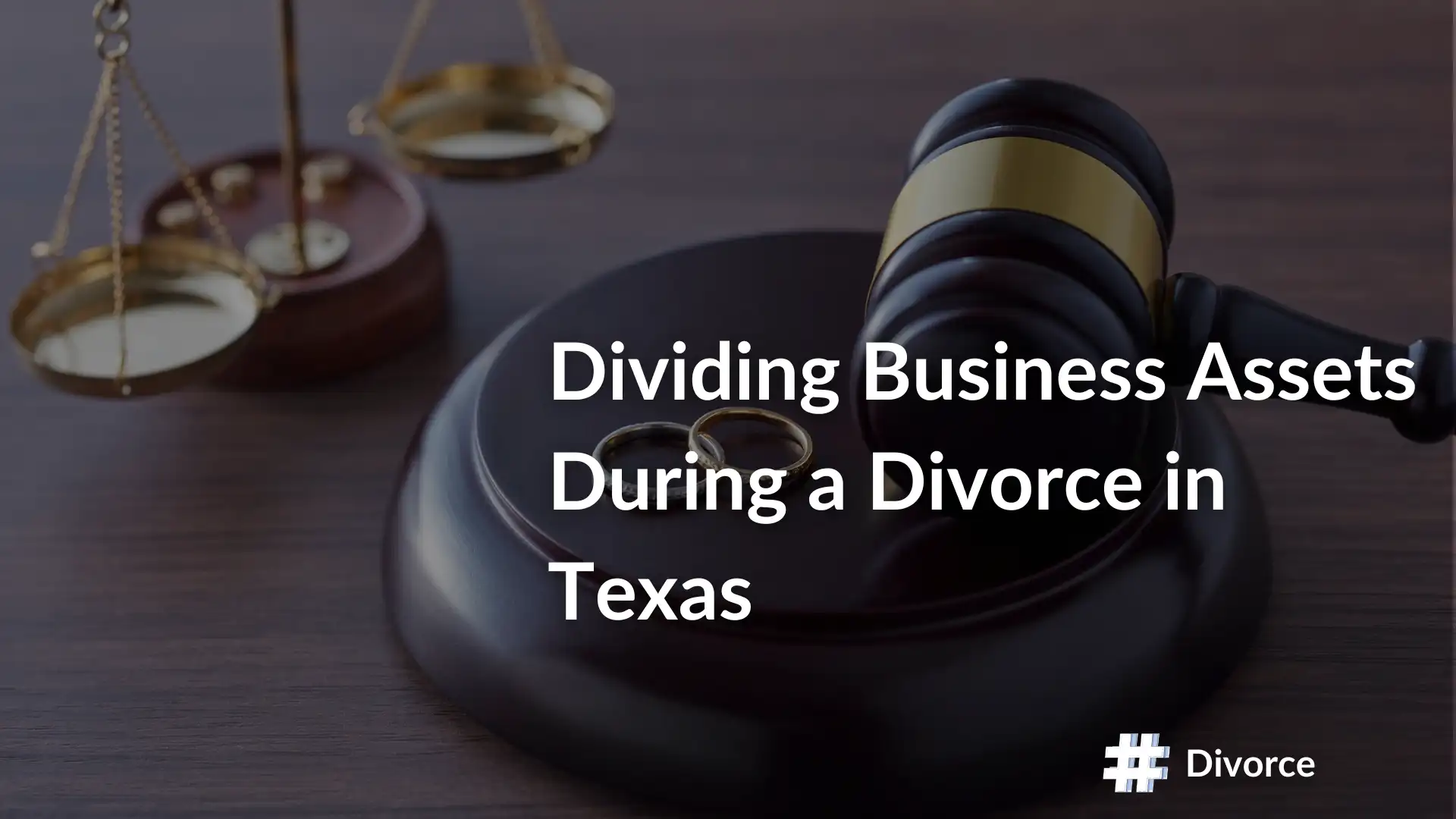When a couple goes through a divorce, business assets often become one of the most complicated and emotionally charged issues to resolve. For business owners in Texas, understanding how the state’s property laws affect their company can help them prepare for what lies ahead—especially when dividing business assets in divorce, which can be complex and emotionally charged.
Is the Business Marital or Separate Property?
Texas follows community property laws, meaning most assets acquired during marriage belong equally to both spouses. However, not all business interests automatically fall into this category. The timing of when you started or acquired your business is crucial in determining how courts will treat it during divorce proceedings, which is why it’s essential to understand how a business is divided in a divorce.
Businesses Started Before Marriage
If you established your business before marriage, the original value is your separate property. However, any growth in value that occurred during the marriage may become community property, especially if your spouse contributed to the business in any way. These contributions can include direct involvement in operations or financial support. However, you might be surprised to learn that it can even include indirect support like managing household responsibilities while you focus on growing the company.
Businesses Started During Marriage
Businesses started during your marriage generally qualify as community property, regardless of which spouse’s name appears on the paperwork. Even if only one spouse actively ran the business, courts often consider the other spouse’s support and contributions.
However, a business you inherited received as a gift would typically remain separate property. Nevertheless, it’s worth noting that if you mixed business funds with marital assets or used community property to improve the business, you might have converted some or all of your separate property into community property through commingling.
Valuing the Business for Divorce Purposes
Once courts determine what portion of your business qualifies as marital property, they must establish its current market value. This process often requires hiring forensic accountants or business valuation experts who can provide detailed analysis and testimony.
Several valuation methods exist for different types of businesses.
- The asset approach examines the company’s tangible and intangible assets, including equipment, inventory, real estate, and goodwill.
- The income approach focuses on the business’s earning potential and cash flow patterns.
- The market approach compares your business to similar companies that have recently sold.
Business goodwill is one of the most disputed aspects of valuation. This intangible asset reflects the company’s reputation, customer relationships, and established market position. Professional goodwill, which depends on the owner’s skills and relationships, may receive different treatment than enterprise goodwill, which exists independently of any individual.
The valuation date also matters significantly. Some courts use the date of separation, while others prefer the date closest to the final divorce decree. Many factors—including market conditions and business performance—can cause substantial value fluctuations between these dates.
Please read more about asset divisions here: Asset division for Chris Rock and ex-wife underway
Legal Considerations When Dividing a Business
Once courts establish the business’s value and community property portion, they must decide how to divide it fairly between spouses. Several options exist.
Buyouts
Buyout agreements allow one spouse to keep the business while compensating the other spouse for their share using other marital assets or structured payments. This approach often works best when the business requires specialized knowledge or dividing ownership would harm operations.
Forced Sale
In this most drastic option, courts order the business sold and the proceeds divided between spouses. Courts typically reserve this solution for situations where no other reasonable alternatives exist, such as when neither spouse can afford to buy out the other’s interest.
Joint Ownership
Continued joint ownership sometimes works for couples who can maintain professional relationships despite personal differences. However, this arrangement requires clear operating agreements that address decision-making authority, profit distribution, and exit strategies.
Factors That Can Affect Division Options
Operating agreements and partnership structures can significantly affect division options. Some business entities restrict ownership transfers or require partner approval before dividing interests. These limitations might force the court to look at alternative options.
Pre-marital and post-marital agreements can protect business owners by stipulating how business interests will be treated in divorce. To remain enforceable, these agreements must meet specific legal requirements, including full financial disclosure and voluntary execution by both parties.
Contact an Experienced Texas Divorce Attorney Today
Business owners going through a divorce need experienced legal guidance to protect their interests. At BB Law Group PLLC, we understand the challenges of dividing business assets and will work diligently to achieve the best possible outcome for your situation. Our team is here to help you understand your rights and take the first step toward securing the necessary benefits. Contact us online or call (832) 534-2589 to discuss your specific circumstances with a knowledgeable divorce attorney in Texas who can help you protect your business interests during this challenging time.


